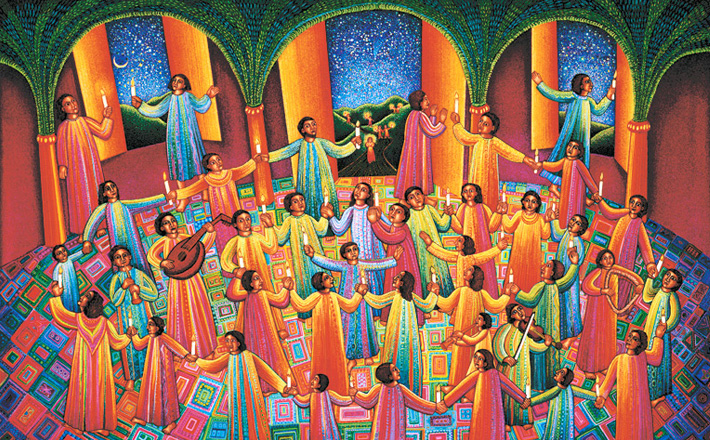Commentary on 1 Samuel 21:1-9; Matthew 12:1-8 (or Mark 14:12-25)
[This is Week 4 of a 4-week preaching series on Sacraments.]
The Lord’s Supper
The Lord’s table, with its supper of bready body and blood-red wine, is a place where we are invited, as the old table-song-summons sings it, “to come and dine, the Master calls us.”
Here again the celebration of the Lord’s Supper creates what is sometimes called “liminal space,” space which God creates using the concrete elements with a word of Promise, in order to meet us, feed us, forgive us, bring us together. And, just as importantly, this space, this place, is where we can encounter the living God — to meet, and know, be transformed by Christ Jesus.
Week 4: Sept. 3, 2017 [Lord’s Supper]
Preaching text: 1 Samuel 21:1-9; Matthew 12:1-8
In Matthew 12 (and Luke 6 as well) the story of Jesus’ disciples “plucking grain on the Sabbath,” and Jesus healing on the Sabbath, are tied to the story David and his followers eating the “holy bread” — that is, covenant renewal bread that was dedicated to the Lord and usually eaten only by priests (see Leviticus 24:1 and following).
At stake in each of these stories is the question of, What is the Sabbath for? Or to reframe it in terms of last week’s reading from 1 Corinthians, Who is unworthy of receiving the gifts of the Sabbath? The implication in the Gospel is that, because Jesus is “Lord of the Sabbath,” and therefore Lord of the Supper, the answer is no one. Why? Because Jesus “desires mercy and not sacrifice.”
The idea is that in the presence of the Lord of the Sabbath, in that place, we find ourselves fed with bread far above our station, or worth (Psalm 78’s “bread of the angels”), and by that bread we are made worthy.


September 3, 2017